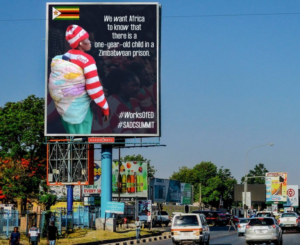MNANGAGWA’S NEPOTISM THREATENS ZIMBABWE’S FUTURE

In political history, “nepotism” often means corrupt leaders giving top jobs to family and friends. This practice hurts fairness and trust in the government. Zimbabwe, under President Emmerson Mnangagwa, is now a clear example of this problem. Mnangagwa has given important government jobs to his sons and close friends. This raises serious worries about the country’s future.
One of the worst examples is Mnangagwa appointing his son, Kudakwashe Mnangagwa, as the deputy Finance minister. His nephew, Tongai Mnangagwa, is now the deputy Tourism minister. These choices are surprising because they lack the experience needed for these important jobs. But Mnangagwa’s nepotism does not stop here. He has filled many government roles with his family and friends, making his administration a close circle of relatives and cronies.
Former president Robert Mugabe, despite his power, rarely gave key jobs to his family. Near the end of his career, a few family members got positions, but it was not as blatant as Mnangagwa’s actions. Unlike Mugabe, Mnangagwa’s nepotism is extreme. Even his wife, Auxillia, has been given government tasks without having an official role. This misuse of power reminds people of authoritarian leaders who put personal gain above public service.
Mnangagwa’s nepotism brings many problems. It questions meritocracy and shows corruption in the government. Giving important jobs to unqualified people breaks the rule of hiring based on merit, which weakens public services and harms citizens. It also encourages a greedy attitude among leaders. Additionally, it risks creating a family dynasty in government, hurting political stability.
At its core, Mnangagwa’s nepotism shows a lack of ethics. A president’s job is to make sure government institutions run well for the people. It is not to turn public service into a family business. Zimbabweans should oppose this nepotism because it leads to incompetence, poor services, and corruption. These issues increase poverty and suffering among the people.
Some defend nepotism by saying family members are qualified. But the problem remains that it is the President or another official who decides, opening the door to more nepotism. History shows that dictators often use this excuse to justify their actions, which hurts democracy.
To fight nepotism, some countries have laws to stop appointing relatives to government jobs. For example, the United States has an anti-nepotism law since 1967. This law stops officials from hiring family within their agencies. Zimbabwe should think about creating similar laws to fight nepotism in government.
Mnangagwa’s clear nepotism is a big worry that threatens Zimbabwe’s governance. It shows a disregard for merit, increases corruption, and raises questions about the nation’s future. Zimbabweans must stand against this practice. They should demand fairness and transparency in government jobs to ensure a better future for their country.



